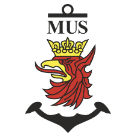Detailed introduction of Maritime University of Szczecin:
Introduction
Maritime University of Szczecin is an influential public maritime technical university in Poland. It is located in Szczecin, Poland. Its main tasks are to train professional talents in the maritime field and conduct related scientific research. It occupies an important position in the field of maritime education in Poland and even in Europe.
Overview
Number of students: Currently, the school has about 1,400 full-time students and about 800 part-time students, totaling about 2,200. In addition, there are 400 foreign students from 20 countries, creating a multicultural learning atmosphere for the school.
Number of faculty and staff: No clear specific data has been found yet, but the school has a team of highly professional teachers who can provide students with high-quality teaching and guidance.
History and Establishment
The history of the school can be traced back to the State Maritime School established in 1947. In 1962, the school moved to one of the best locations on the Chrobry Embankment in Szczecin. In 1968, it became a higher maritime school. On October 12, 1969, the Szczecin Maritime University was officially established. In 2002, the School of Economics and Transport Engineering was newly established. In 2004, the school was renamed Akademia Morska. On September 1, 2022, the Polish name was changed from "Akademia Morska" to "Politechnika Morska", but its English name is still Maritime University of Szczecin.
School Strength
Teaching Staff: The school has a group of experienced and professional teachers. They not only have profound attainments in academic research, but also have rich practical experience. They can impart practical professional knowledge and skills to students and help students better adapt to future jobs.
Scientific research achievements: The school has carried out extensive and in-depth scientific research work in maritime-related fields and has achieved a series of important scientific research results. For example, research in ship technology, marine engineering, navigation safety, marine environmental protection, etc. has made positive contributions to promoting the development of the maritime industry.
International Cooperation: Actively participate in many international cooperation projects and establish cooperative relations with many foreign universities and research institutions, such as academic exchanges and cooperation with internationally renowned maritime colleges such as Dalian Maritime University, providing students and teachers with a broad international exchange platform and enhancing the international reputation and influence of the school.
Institutional Nature
Public University.
Educational Philosophy
Focus on the combination of theory and practice, and is committed to cultivating maritime professionals with solid professional knowledge, superb practical skills and innovative spirit. It emphasizes that students master practical operation skills in practical links such as simulator laboratories to meet the demand for high-quality talents in the maritime industry. At the same time, it focuses on cultivating students' sense of responsibility and teamwork spirit so that they can be competent for various challenges in their future careers.
Key Laboratories and Disciplines
Key Laboratories: The school has more than 100 well-equipped laboratories, as well as a modern research and training ship M/S Nawigator XXI, and is also equipped with 17 state-of-the-art simulators, such as ship handling simulators, LNG EU training centers, anti-collision ARPA simulators, electronic chart display and information system simulators, ship traffic system simulators, satellite communication system simulators - GMDSS These advanced facilities provide strong support for teaching and scientific research, making the school one of the most well-equipped maritime universities in the world.
Key disciplines: Navigation, marine engineering, transportation engineering, computer science and telecommunications, mechatronics and electrical engineering are the key disciplines of the school. These disciplines have achieved remarkable results in teaching, scientific research and talent training, laying a solid foundation for the development of the school.
Department
The school has five colleges, namely:
Navigation College: Provides undergraduate and master's degree courses in navigation, and cultivates professional navigation talents such as ship drivers and navigators.
School of Marine Engineering: Focuses on education and research in the field of marine engineering, covering professional directions such as ship mechanical engineering and shipbuilding, and cultivates engineering and technical talents for the shipbuilding industry and marine development.
School of Engineering and Transport Economics: The college's majors involve transportation management, logistics engineering, port operations, etc., and cultivates professional talents who can engage in management and planning in the field of maritime economy and transportation.
School of Computer Science and Telecommunications: With the widespread application of information technology in the maritime field, the school's majors such as computer science and telecommunications engineering train professionals who master advanced information technology for the maritime industry to meet the needs of digital navigation and maritime management.
School of Mechatronics and Electrical Engineering: Mainly train professionals in mechatronics technology and electrical engineering, who can engage in the maintenance, management and research and development of ship electromechanical equipment to ensure the normal operation and technological innovation of ships.
Ranking
It is listed in the 2024 THE World University Comprehensive Ranking, but the specific ranking position is not clear.
Fees
Tuition fees vary depending on the major and degree level, and no clear specific data has been obtained yet.
Campus
Location and environment: Located in Szczecin, Poland, the city is one of Poland's important port cities and economic centers, with a strong marine cultural atmosphere, providing a good external environment for the development of the school and convenient conditions for students' internships and employment.
Campus facilities: The campus has modern teaching facilities and complete living facilities. In addition to the above-mentioned laboratories and research and training ships, there are also libraries, gymnasiums, student dormitories, restaurants, etc., which can meet students' learning, living and entertainment needs, and provide students with a comfortable and convenient campus environment.
-
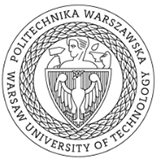
Warsaw University of Technology
-

Poznan University of Life Sciences
-

Wroclaw Medical University
-

Nicolaus Copernicus University
-
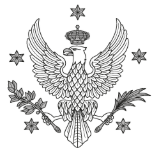
University of Warsaw
-

AGH University of Science and Technology
-

Silesian University of Technology
-
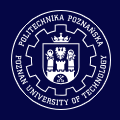
Poznan University of Technology
-

Jagiellonian University
-
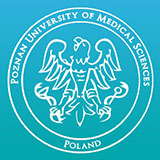
Poznan University of Medical Sciences
-

Mesoamerican University
-

Istmo University
-

Mariano Galvez University of Guatemala
-

Regional University of Guatemala
-

Galileo University
-

Francisco Marroquín University
-

Rafael Landívar University
-

University of the Valley of Guatemala
-

University of San Carlos of Guatemala
-

Technological Institute of Tlaxcala Plateau
-

Golfo University
-

Technological University of South Sonora
-

Technological University of Huejotzingo
-

Tizimín Institute of Technology
-

Chilpancingo Institute of Technology

